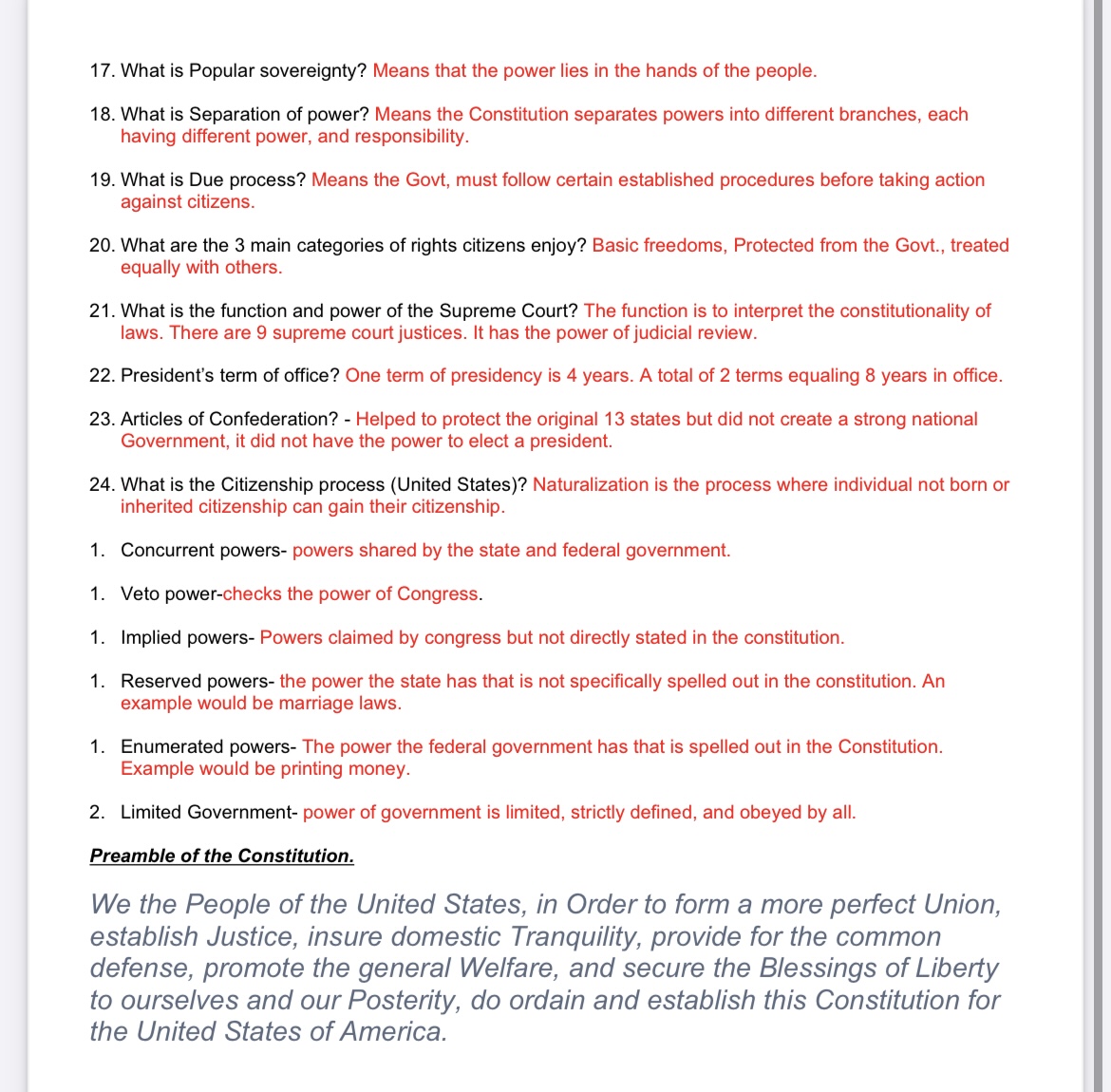What is popular sovereignty? What is the separation of power? What is due process? What are the 3 main categories of rights citizens enjoy? What is the function and power of the Su... What is popular sovereignty? What is the separation of power? What is due process? What are the 3 main categories of rights citizens enjoy? What is the function and power of the Supreme Court? What is the president's term of office? What are the Articles of Confederation? What is the citizenship process in the United States?

Understand the Problem
The question is asking for definitions and explanations of various concepts related to the U.S. Constitution and governance, such as popular sovereignty, separation of powers, due process, and others.
Answer
Power lies with people, government powers are divided, fair procedures are required, citizens have rights, Supreme Court interprets laws, presidential terms are four years, initial governance was by the Articles of Confederation, and citizenship is by naturalization.
- Popular sovereignty means that power lies with the people. 2. Separation of power involves dividing government powers into branches. 3. Due process requires fair procedures. 4. Basic freedoms, protection by government, and equality are the citizen rights. 5. The Supreme Court interprets laws. 6. Presidential terms are four years. 7. Articles of Confederation were an initial governing document. 8. Citizenship is gained through naturalization.
Answer for screen readers
- Popular sovereignty means that power lies with the people. 2. Separation of power involves dividing government powers into branches. 3. Due process requires fair procedures. 4. Basic freedoms, protection by government, and equality are the citizen rights. 5. The Supreme Court interprets laws. 6. Presidential terms are four years. 7. Articles of Confederation were an initial governing document. 8. Citizenship is gained through naturalization.
More Information
These concepts are foundational to understanding U.S. governance. Popular sovereignty emphasizes the role of citizens in government legitimacy. Separation of powers ensures checks and balances. Due process protects citizens from arbitrary state actions. The Supreme Court serves as the interpreter of constitutional law, balancing governmental powers.
Tips
Confusion often arises between separation of powers and checks and balances. Remember, separation of powers divides government roles; checks and balances enable each branch to limit others.
Sources
- Popular Sovereignty - Annenberg Classroom - annenbergclassroom.org
- Separation of Powers in Action - U.S. v. Alvarez - U.S. Courts - uscourts.gov
- Constitution and Separation of Powers - American Bar Association - americanbar.org
AI-generated content may contain errors. Please verify critical information